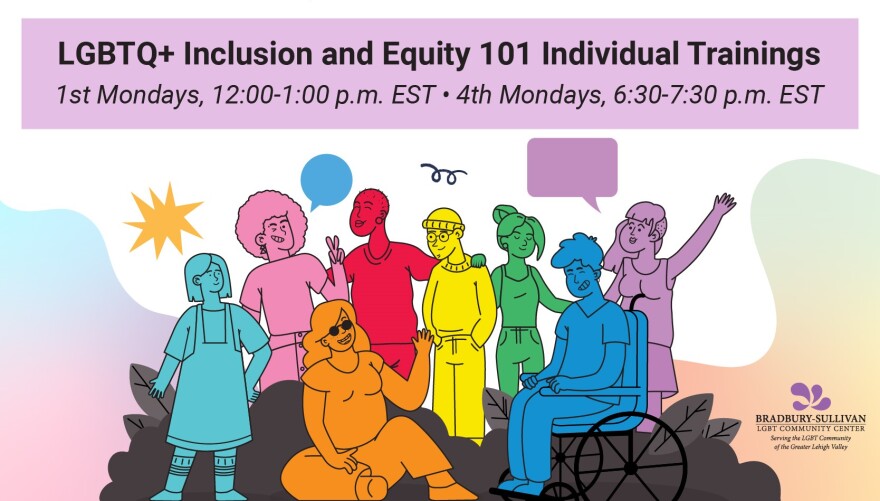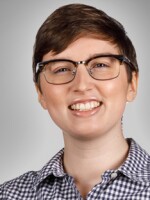ALLENTOWN, Pa. — Those who want to learn more about the LGBTQ community are in luck.
Bradbury-Sullivan LGBT Community Center is holding a new training session called LGBTQ+ Inclusion & Equity 101.
- Bradbury-Sullivan LGBT Community Center is holding training called LGBTQ+ Inclusion & Equity 101 for individuals to learn more about the LGBTQ community
- It is run through the center's LGBTQ+ Education Institute, which has held trainings for workplaces and other organizations
- The training has a suggested donation of $30, which is not required to attend
It's being offered noon-1 p.m. on first Mondays of the month and 6:30-7:30 p.m. on the fourth Mondays of the month.
The center held its first virtual session Monday night.
The training is meant for individuals who want to learn more about terminology related to gender and sexuality, how to combat biases and assumptions about the LGBTQ+ community and how to develop approaches to inclusion.
The training has a suggested donation of $30, which is not required to attend.
Bradbury-Sullivan Center has held similar trainings for workplaces and other organizations through its LGBTQ+ Education Institute, but never before for individuals.
The first session
Director of the institute Robin Gow led the training. Gow said he decided to start the training sessions because he wanted to increase access to them and give people the opportunity to learn outside the context of the workplace.
“I want people as individual community members to engage with, ‘What does queer inclusion look like?’” Gow said.
During the session, Gow defined different terms used by members of the LGBTQ community, such as gender expression and gender identity.
“Expression is how you express yourself, like mannerisms, gestures, how you dress," Gow said. "And then identity is how you think about yourself."
During the session, center Community Health Advocate Meaghan Lawlor spoke about the word "queer." Lawlor explained that it historically was used as a slur against LGBTQ people, but some in the community have reclaimed it.
“There are a lot of people who are very cool with using it,” Lawlor said. “And then there are some who are going to be a little bit more shy, or not wanting to use it as much.”
Gow added, “If someone is using it to describe themselves, then it's OK. But just don’t apply it to people who might not have said that they're queer.”
'Terms evolve and change'
Gow said that in general, the words and terminology people have used for their identities have varied across different generations, and likely will continue to do so.
"Even when I interact with middle schoolers, they’re using different terms than I would use,” Gow said. “It's not bad, it's just, you know, the terms are always going to change.”Robin Gow, Director of the LGBTQ+ Education Institute at Bradbury-Sullivan LGBT Community Center
“I think continuously, we're gonna see terms evolve and change," Gow said. "Like, even when I interact with middle schoolers, they’re using different terms than I would use.
“It's not bad, it's just, you know, the terms are always going to change.”
Gow spoke briefly about different trans and gender non-conforming identities in indigenous cultures, which some refer to with the umbrella term "two spirit."
Gow also spoke about the people in the Wild West who were assigned female at birth but lived as men at the beginning of the 20th century.
“I think that people really feel like being trans is a new thing, and it's really not,” Gow said. “I will say that this wave of bigotry and the ways in which the identity has really been politicized is really new.”
To sign up for the training, email robin@bradburysullivancenter.org.


